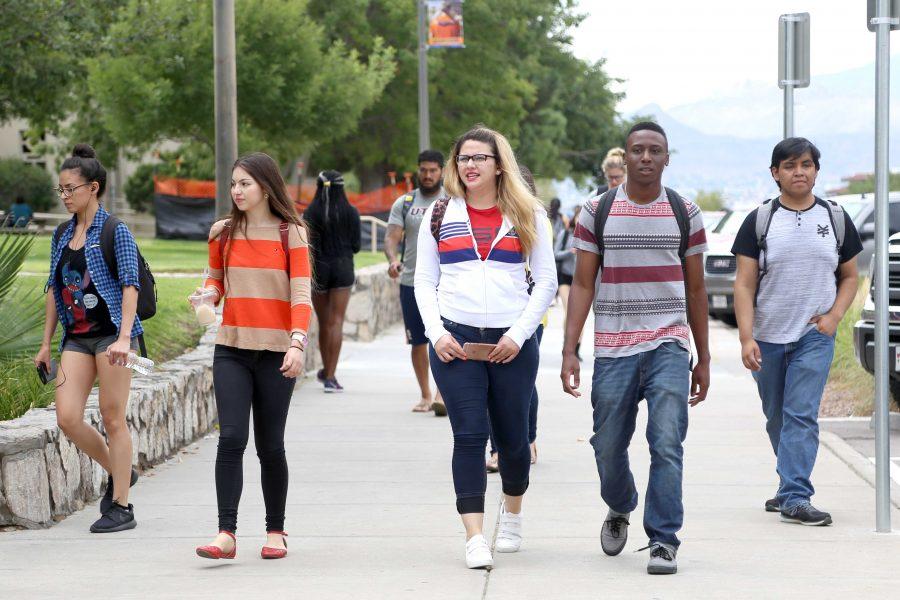A new UTEP program is trying to break the barriers between student victims of crimes and the available resources they can use to overcome a possible trauma.
In August of last year, Texas Governor Gregg Abbot’s Criminal Justice Division awarded a one-year $364,183 grant to UTEP for the Miners Assistance Pilot for Survivors (MAPS) program. UTEP is one of two institutions that received this Texas grant.
Arely Hernandez, director for the Center for Advocacy Resources and Education at UTEP, said that she and her staff decided to keep the acronym, but decided to change the wording of the program to Miners Advocacy and Prevention Services.
MAPS provides free and confidential services to any UTEP student who is a victim of a crime. Students can report crimes that took place on and off campus.
Mariel, a UTEP student who wished to remain anonymous, experienced a sexual assault incident during her freshman year and said she didn’t report the incident the first time because she was afraid of her aggressor.
“I didn’t want to give my name when I did the report so I didn’t report the first time it happened. I thought maybe if I just left it alone he would stop bothering me,” Mariel said. “It was a lot of mixed emotions.”
According to Rape, Abuse and Incest National Network, an America anti-sexual assault organization, only 20 percent of female student victims, ages 18-24, report to law enforcement.
“When you go through something traumatic, you need someone to talk to and a lot of people don’t want to do that with a police officer and that’s fine,” Mariel said. “So, programs like this one can be very beneficial for those who are still struggling with what they went through.”
Hernandez said that students can seek resources with MAPS without having to make a police report or having to contact the Office of Student Conduct and Conflict Resolution.
“There is no investigation. Our staff members are confidential and they cannot report to anyone outside the MAPS team,” Hernandez said. “A lot of our students, unfortunately, don’t report these incidents because they don’t want an investigation to occur that includes their name.”
Hernandez said that MAPS recommends that students file a police report because they want an open investigation on the aggressor.
“If a student would want to report, which we encourage and recommend, we can accompany them to the police, to a court, we can go with them to seek medical and legal services,” Hernandez said.
She also said that if students need specific arrangements—moving from a classroom, dorm or parking lot—the MAPS staff would intervene to help them feel safer.
“We can just go to the dean of students and request that arrangement without any questions asked and that request will be handled through their office, but again no details about who you are will be given to them,” Hernandez said.
Hernandez said that MAPS, which will be available off-campus at the Campbell Building, 1101 N. Campbell St., and they will make arrangements for students who can’t find transportation.
“We can schedule a meeting for us to go to the main campus and we can reserve a room and have the confidential conversations they are looking for,” Hernandez said. “We want our students to know that we will be there for them.”
Even though students are not required to make a police report, MAPS will be required to report the number of students who sought resources from the program to the university, which will be included in the Annual Security and Fire Safety Report—an annual report from UTEP campus police.
“We have to report because it’s a federal mandate, but we will only be sending a number,” Hernandez said. “There’s nothing that can connect back to this particular individual that sought services with MAPS.”
Hernandez said that the program may not stop crimes from occurring, but it allows students to seek help.
Hernandez also said a counselor will be available to students who seek MAPS resources and that the counselor is expected to arrive at UTEP by mid-February.
“The reason why we will have a counselor within the MAPS program is in case we have crisis intervention,” Hernandez said. “If we have a student who needs immediate attention, we want to make sure we have someone there rather than having them wait.”
According to the latest data from the Annual Security and Fire Safety Report, five incidents of rape were reported at UTEP during 2016.
“One case is too much,” Hernandez said. “Those numbers are one of the many reasons why programs like these are created. The safety of our students comes first.”
Hernandez said that they will try to hire a second counselor and a project coordinator when her staff is in the process of renewing the MAPS grant for two more years.
“I want to encourage my students, who have suffered a crime, to seek the services we offer,” she said. “Don’t be afraid to report, we are here to help our students.”
If you or anyone you know has been a victim of crime, you may contact MAPS at (915) 747- 8154.










